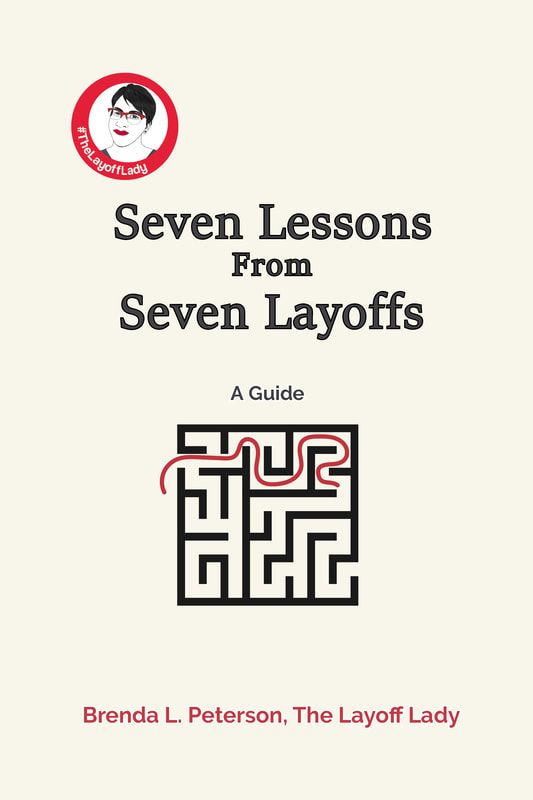|
By Brenda L. Peterson, The Layoff Lady What Do You Want To Be Next?We often ask children, “What do you want to be when you grow up?” As an adult who is in career transition, it’s time to ask yourself, “What do I want to be next?” Remember, you don’t have to do the same thing you were doing before, and now is the perfect time to think about what job is the right next step for you. Shouldn't I Just Take What I Can Get?As a job seeker, I understand the tendency to feel like you are in no position to be picky. However, when I talk with job searchers having difficulty landing a new role, not having a focus for their job search actually slows their progress considerably. Most of the time, employers are less likely to hire someone who wants what I would call “any old job.” Employers would rather find someone who genuinely wants to do a specific type of work, has the necessary skills, and is targeting an identified role. One of the best things you can do for the success of your job search is to figure out what you really want to do, then use your resume and LinkedIn profile to promote yourself as a match for your desired role. Take a BeatWhen your job suddenly ends, I think the natural tendency is to think “I need to be reemployed as quickly as possible” or to skip thinking altogether and seek out exactly the same job you had before. It’s not that you can’t seek out the exactly same type and job title you had before—because you can! Just make sure to reconfirm with yourself that it is the job you want. After my very first layoff, I took a moment for contemplation and thought to myself, “This is my chance to figure out what it is I want to do with my life! I can do anything?” Approximately 5 minutes later, I realized “For me, this is the right area.” Other times, when I fell in that “must get a job right now!” mindset, I just got a job with about the same title as my last job with about the same type of company. Was it a bad decision? Not necessarily. Whether you do the same things as before, or want to shift gears, make sure you’re actively deciding what is next for you. What do you want? Learning About YourselfThe first step of job searching is figuring out what kind of a role you even want. Instead of jumping right into the exact job you did before, it's wise to take a little time for introspection. One good step in this process is finding out more about your strengths. Learning about what you are good at--and how to tell the story of your talents and successes--can help you position yourself well as you apply and interview for a new role. Reflect on Your ValuesA good starting point is thinking about what you truly value in life, and how you express those values. Personally, I also find that it's awfully hard to think of the right words to articulate those high level ideas that matter to you. I discovered the think2perform Online Values Exercise at a previous job when I was designing a retirement planning seminar. Since thinking about your money (or your work for that matter) starts with what you care about on a larger scale, this is a great starting point. Personally, I take this assessment on at least an annual basis because the process helps me revisit my values in general and helps me more thoughtfully talk about what I do and why I do it. The assessment itself includes 51 named value cards and 4 rounds of reviewing the cards. The total time to complete this activity is about 15 minutes, and perhaps more depending on how much contemplation you do during the process. You also have the option to add your own values as needed. In the end, you'll have 5 value cards with descriptions that name and describe key areas that matter to you. After you identify your top 5 values, think about how you live those values in your life, and how you would like to express those values in your work. Use these as your guideposts as you move on to the next steps. Identify Your Work StrengthsThe CliftonStrengths Assessment (previously known as Clifton StrengthsFinder) is a wonderful tool for identifying what you are good at, how that manifests, and how your version of each strength shows up. It not only helps you identify your top strengths, but also gives you language to talk about skills you didn't even realize everyone else didn't have. To access this assessment, you can purchase the StrengthsFinder 2.0 Book (which includes a code for the new CliftonStrengths Online Assessment) or you can directly pay for and access the CliftonStrengths Top 5 Assessment on Gallup.com. Either option should cost around $20 for the basic assessment and results, with the option to purchase additional assessments or training based on your level of interest. The 30-minute online assessment includes 177 questions including paired statements. On a scale you select which of the statements is more like you. From there, you'll receive a report identifying your top five strengths along with a more detailed description of how those strengths are exhibited in how you interact with the world. Reading a report about yourself (one that is freakishly accurate, by the way) is downright life changing. After taking the assessment, you'll be able to see your unique talents, and have language to explain how what you do sets you apart from others. Having a way to put your abilities into words can translate directly into your resume, and how you talk about who you are and what you bring to the table. Reflect on Roles and Identify What You WantThink about your previous jobs and reflect on what you liked and didn't like. As yourself the following questions and write down your answers:
Talk To People In Roles of InterestOne helpful way to find out more about possible career options is to talk to people who are currently in those roles. By reaching out to individuals in your professional network, and asking them to put you in touch with people they know who could help, you can make new connections and find out about specific companies and roles. This will help you start to bridge the distance between your skills, and possible job titles and companies that might be a good fit for you. Learn More
0 Comments
Your comment will be posted after it is approved.
Leave a Reply. |

Just get laid off?
Click here for info on what to do first. Author7-time layoff survivor Brenda L. Peterson, The Layoff Lady, waxes poetic on layoffs, job transitions, & career resilience. Buy The Book!Were you recently laid off from your job and need a roadmap for what's next? Pick up a copy of my book, Seven Lessons From Seven Layoffs: A Guide!
Categories
All
Archives
July 2024
|




